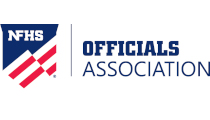
Some officials consider “advancement” strictly in terms of going from a lower to a higher level – striving for the striped brass ring of officiating competition at the highest levels, with the right stuff along the way they progress to their ultimate goal. These ever-improving fellow officials deserve the awe and admiration of both their peers and those cohorts looking up from the lower levels. From them there is a lot to learn. They have a lot to show and share.
An aspiring, hard-working official starts out working middle school ball and develops there. He or she advances in experience, rules knowledge, mechanics awareness and judgment, then progresses to be assigned at the junior varsity level. Then from JV to the varsity level. Then varsity to college . . . and beyond. Advancement of this sort yields a level always higher than the one mastered previously. But there’s one key thing that gets this official there: development. No one advances to any higher level without developing.
This kind of official has a lot to show, and a lot to share. How beneficial it is when those on their way up invest time and effort for the benefit of others: mentoring newer officials, serving as clinicians at camps, motivating in others that same passion for development that got them to the level they’re at. Regardless of status, all developing officials have benefitted from some who have advanced or are still advancing to levels higher than they’ve yet to attain.
However, others are fine examples of those on another route. Some might incorrectly consider this alternative a “route to nowhere,” but it really isn’t. This other way to advance merits the regard and admiration of those on their way up. If properly recognized this can be a satisfying alternative for those not so “brass ring-minded.” There is a way to advance while remaining at the same level. Both approaches and outlooks deserve the respect and encouragement of fellow officials, regardless which track they themselves have chosen or has been chosen for them.
This other track taken is equally admirable. The lights might be not as bright, the game checks not as fat, and the notoriety not as pronounced, yet this too is a loyal track to be trod. Advancing can also mean developing at the same level without moving up.
For sure, little is admirable about an official who stagnates at a certain level. With little hope of going higher, he or she just gives up and ceases getting better while remaining at the highest level he or she could progress. This isn’t good for anyone, neither coaches, players, assignors, fellow officials, nor fans. Officiating, it’s been said, is like being a fruit on a tree; either you’re ripening or you’re rotting. Let’s consider the why’s and how’s of advancing while remaining at the same level.
It could be by choice or by circumstances out of an official’s control (age? family or work schedule? physical limitations? been there/done that?) that an official stays where he or she is at, pursues development and excellence at that certain level, choosing not to accept either the opportunity or invitation to “step up.” Yet through continuing development, that official advances while remaining at the same level.
When done right, this track has that one important element in common with the first: development. It takes continuing development and enrichment on the part of this official to advance while remaining at the same level. It requires real progression in rules knowledge, mechanics, judgment, confidence, communication skills. Experience, rather than resulting in stagnation, leads to excellence at that level. The level may not change, but the passion for continued development is always at a high point.
For many this alternative has its own set of rewards. Advancement is realized in ways other than brighter lights, bigger checks and more notoriety. It might mean working with a better crew on more significant games. It might mean becoming the assignor’s “go to person” who is capable to handle the tougher contests that arise during a season, requiring special assigning consideration. It might manifest itself with accepting local association roles and activity instead of more games and a more taxing travel schedule. It might mean dedicating effort and time to mentor newer officials or to observe and constructively critique peers. While staying at the same level, one can help others advance while savoring the satisfaction of knowing that one is right where he or she is needed most, advancing while remaining at the same level. It’s not stagnation, it’s development. That official hasn’t reached the end of the road; he or she is still progressing.
When an official sets his or her goals, advancement should always somehow be represented on the list. If it is, continued development ought surely accompany advancement on the visionary agenda. But advancement doesn’t always mean getting to a high level. If it does for you, know that you’ve got many fellow officials who are there to support, encourage, and assist you while you’re on the way up. But while on that track, be sure also to take the time and effort to support, encourage and assist your fellow officials who, whether by choice or not, are on a different course. They’re likewise developing and advancing, but they are content and confident at the level they’re at.
When advancement is accompanied by development, regardless the road chosen and travelled, everybody benefits.
Freddy Krieger
Freddy Krieger is an officials trainer for the Michigan High School Athletic Association and the Fruit Belt (Michigan) Officials Association.
Most Recent Articles
- nfhs news NFHS Celebrates National Girls and Women in Sports Day
- nfhs news NFHS Learning Center Delivers 25 Millionth Course
- Track & Field/Cross Country article Effective Communication with Athletes and Coaches
- nfhs news Player Equipment Changes Highlight 2025 High School Football Rules Revisions
- Player Equipment Changes Highlight 2025 High School Football Rules Revisions






